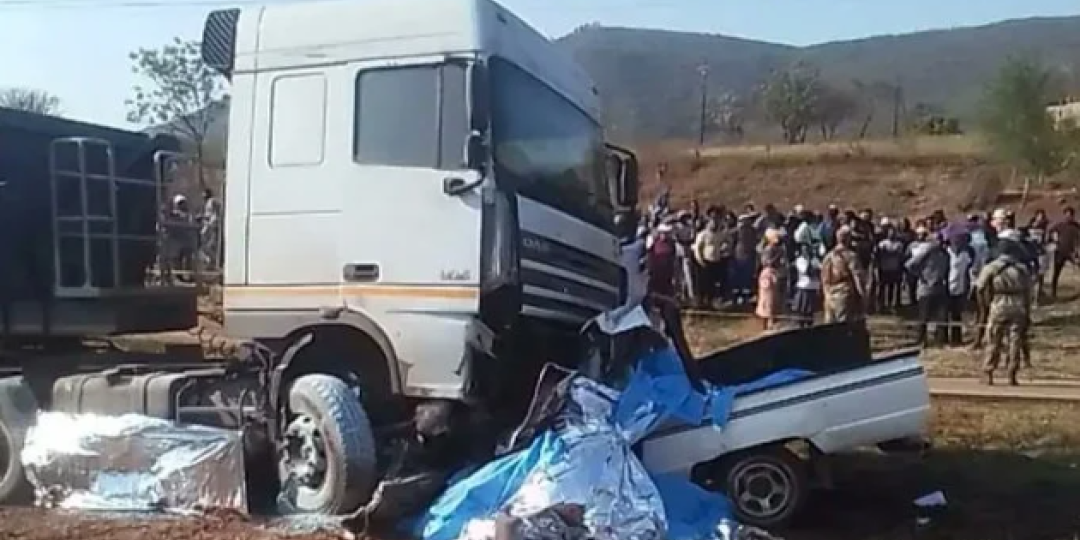The Road Freight Association (RFA) has slated an appeal to the Department of Transport for trucks travelling through Zululand to be refused to move between 06h00 and 18h00 because of a series of violent, fatal accidents.
The plea for the ‘ban’ was issued by Reverend Thulasizwe Buthelezi, the Mayor of Zululand, after 19 children and two adults lost their lives in a head-on collision on the N2 near Pongola last Friday.
One woman lost all three of her children in the horror crash.
A couple of days later a video was widely circulated on social media showing a vehicle ploughing into an overturned coal truck on the R34 south of Vryheid, causing a fireball to erupt while traffic officials and bystanders screamed in terror as they ran for cover.
Miraculously, no one had died in the latter accident, said Mike Fitzmaurice, Chief Executive of the Federation of East and Southern African Road Transport Associations.
Not long after Monday’s accident, in the vicinity of Melmoth, Buthelezi issued his call “for a national strategy to regulate the number of trucks passing through Zululand”.
He said the R34 and N2 “simply cannot cope with the number of trucks passing these routes on an hourly basis”.
“There is enormous pressure on our road infrastructure and, as a result, fatal road accidents have become a daily occurrence.”
However, Buthelezi’s call for Transport Minister Fikile Mbalula to remove trucks off the road during most of the day has been dismissed by RFA CEO, Gavin Kelly, as “a very badly informed call – not the way to go at all”.
Said Kelly: “We have spent many years trying to get as many trucks off the roads at night as possible.
“The risk is far greater with bad lighting (both from oncoming vehicles and trucks’ own lights), reflectivity, lack of law enforcement presence on roads after 16h00 and the increase in reckless and negligent driving behaviour by all categories of vehicles.”
He said the Road Traffic Management Corporation should come out strongly against this, given the crash statistics they publish.
According to Kelly, even if such a plea succeeded there would be a significant amount of trucks that would travel at night due to the nature of cargo and scheduling, supplying fresh goods for retail, the restocking of shelves, manufacturing processes and the like.
“Imagine all freight now moving at night. There would be a flood of vehicles trying to get on to and along the routes.”













